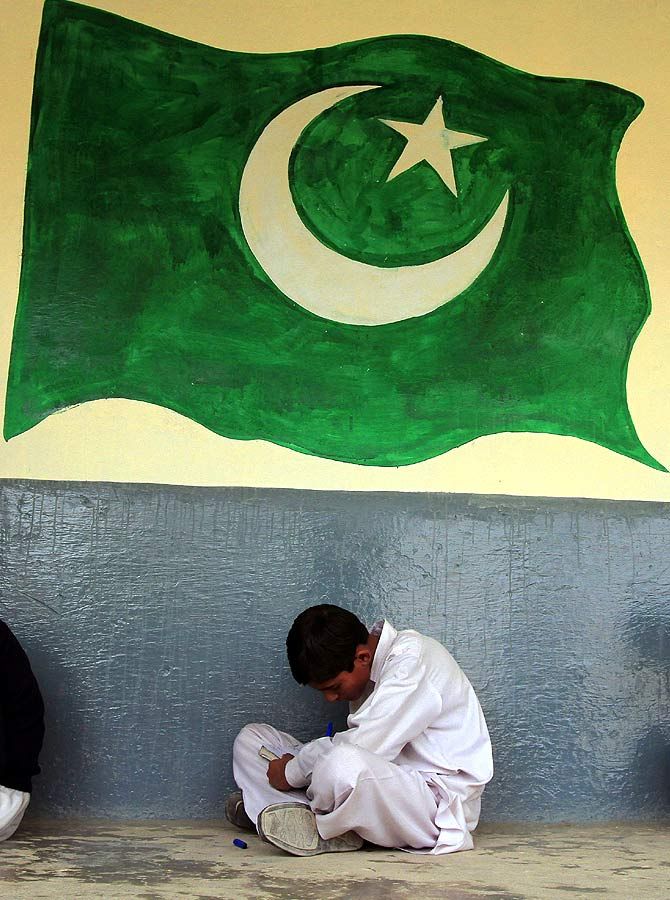 The United States, which spends billions monitoring adversaries like Al Qaeda, North Korea and Iran, pays an equal amount of attention on ally Pakistan and has ramped up surveillance of its nuclear arms, according to a report.
The United States, which spends billions monitoring adversaries like Al Qaeda, North Korea and Iran, pays an equal amount of attention on ally Pakistan and has ramped up surveillance of its nuclear arms, according to a report.
The "US intelligence agencies are also focused on the security of the nuclear programme in India, Pakistan's arch-rival," The Washington Post reported on Tuesday, citing classified documents.
"The $52.6 billion US intelligence arsenal is aimed mainly at unambiguous adversaries, including Al Qaeda, North Korea and Iran. But top-secret budget documents reveal an equally intense focus on one purported ally: Pakistan," the Post reported.
Citing a 178-page summary of the intelligence community's "black budget", it said the US has ramped up its surveillance of Pakistan's nuclear arms as it is concerned about the biological and chemical arms sites there and tries to evaluate the loyalty of Pakistani counter-terrorism agents recruited by the Central Intelligence Agency.
"Pakistan appears at the top of charts listing critical US intelligence gaps. It is named as a target of newly formed analytic cells. And fears about the security of its nuclear programme are so pervasive that a budget section on containing the spread of illicit weapons divides the world into two categories: Pakistan and everybody else," the Post said.
The paper said the classified document was provided to it by former National Security Agency contractor Edward Snowden, who leaked some of America's most closely guarded secrets.
"The disclosures expose broad new levels of US distrust in an already unsteady security partnership with Pakistan, a politically unstable country that faces rising Islamist militancy," the Post said.
It also reveals a more expansive effort to gather intelligence on Pakistan than US officials have disclosed.
The US has delivered nearly $26 billion in aid to Pakistan over the past 12 years in exchange for its cooperation in counter-terrorism efforts.
"But with Osama bin Laden dead and the Al Qaeda degraded, US spy agencies appear to be shifting their attention to dangers that have emerged beyond the patch of Pakistani territory patrolled by CIA drones," the paper said.
Pakistan is estimated to have as many as 120 nuclear weapons and the documents indicate that US spy agencies suspect that Islamabad is adding to that stockpile.
In their proposal for fiscal 2013, US spy agencies sought $16.6 billion to fight Al Qaeda and other terrorist groups and asked for $6.86 billion to counter the spread of nuclear, biological and chemical weapons, The Post said.
Together, the two categories accounted for nearly half of the US intelligence community's budget request for this year.
The paper said US "intelligence agencies are focused on two particularly worrisome scenarios: the possibility that Pakistan's nuclear facilities might come under attack by
Islamist militants" and even greater concern that "Islamist militants might have penetrated the ranks of Pakistan's military or intelligence services, putting them in a position to launch an insider attack or smuggle out nuclear material."
Pakistan has dozens of laboratories, production and storage sites scattered across the country.
"After developing warheads with highly enriched uranium, it has more recently tried to do the same with more-powerful and compact plutonium," the Post said.
"The budget describes the creation of a Pakistan WMD Analysis Cell to track movements of nuclear materials. Agencies, including the CIA and the defence department, were able to develop and deploy a new compartmented collection capability that delivered a more comprehensive understanding of strategic weapons security in Pakistan," it added.
The paper suggested that US surveillance of Pakistan extends far beyond its nuclear programme.
"There are several references in the black budget to expanding US scrutiny of chemical and biological laboratories. The country is not thought to be running a rogue chemical or biological weapons programme, but US intelligence officials fear that Islamists could seize material from government-run laboratories," it added.
"If the Americans are expanding their surveillance capabilities, it can only mean one thing. The mistrust now exceeds the trust,” it quoted Husain Haqqani, who until 2011 served as Pakistan's ambassador to the US, as saying.










